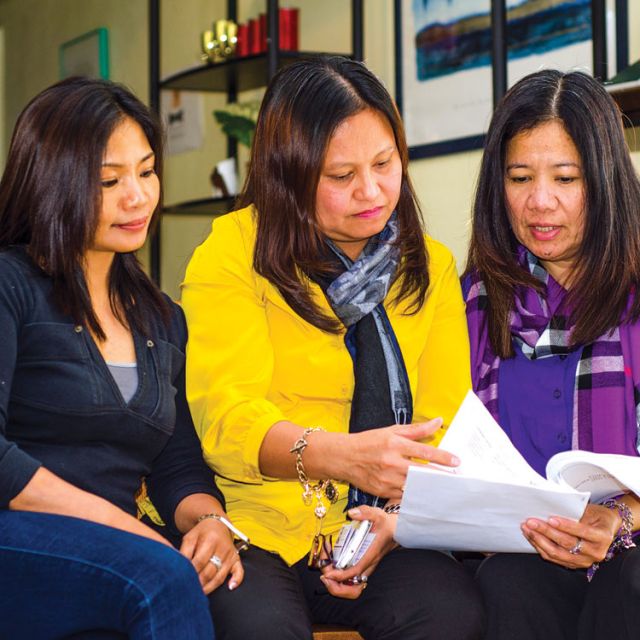“It is very hopeful but until we see the results of that I would maybe hold my horses,” said Arellano, co-ordinator of the Live-in Caregivers’ Ministry at Toronto’s Our Lady of Assumption parish. “There are people who stand to benefit from this and they are the marginalized in our society. I hope it wouldn’t raise a lot of false hopes.”
On Oct. 29 the Ministry of Citizenship and Immigration announced that the government will address the backlog in the Live-in Caregiver Program’s permanent residency application process and implement changes to speed up the process. The government pledged to admit an all-time high 17,500 permanent residents through the program in 2014.
“Wait times in the Live-in Caregiver Program have grown to levels that are unacceptable,” acknowledged Chris Alexander, the Minister of Immigration and Citizenship, in a press release containing the announcement. “Live-in caregivers participating in the program came here with the promise of permanent residency after meeting work obligations. We need to honour our commitment to them.”
As of the end of July there was a backlog of about 30,000 applications for permanent resident status through the caregiver program according to Alexander. These workers wait on average 38 months to receive permanent residency.
To reached that point these workers would have completed 3,900 hours of work over a minimum of 22 months and a maximum of four years before submitting an application for an open work permit and permanent residency. These hours must be completed while functioning as a live-in caregiver, meaning the workers must reside under the same roof as their employer.
“Coming here as a caregiver has a lot of cons with it,” said Arellano. “I have yet to hear from a caregiver who hasn’t really been exploited or somehow had that kind of very imbalance of power in the household. It is almost like they come as workers but at the same time as a second-class citizen, which is really hard.”
Arellano continued by pointing out that many in the program previously worked as nurses, teachers and even accountants in their country of origin.
Even with the work permit, which removes the condition of living with their employer among other things, the caregivers still lack access to many rights and benefits enjoyed by Canadians.
“They need (permanent residency) in Canada to be treated equally like everybody else because they won’t have the benefits and the services until such time,” she said. “You can hear their frustration and it is amazing that they won’t somehow blame the government for it.”
One of the women who benefits from the caregivers’ ministry said her frustration stems from the long wait she has experienced since applying for her permanent residency.
“I got my open work permit two years ago and I am still hoping for my permanent residency to come but ... the government, they are making it difficult to wait so long,” said Gina Magcalas, who’s been in the open work permit limbo since December 2011. “We are happy to get our open work permit because that means that we can work for any employer we want but, the thing is, waiting for the permanent residency is a bit stressful. We just have to wait.”
Beyond access to things like government health care and the Canada Pension Plan, Magcalas is really waiting to be reunited with her son, Ralph Jacob, who has never lived with his mother. Once a permanent resident the first thing Magcalas said she will do, after thanking God, will be to start the process to sponsor her son’s Canadian citizenship.
But like Arellano, Magcalas is remaining cautiously optimistic.
“We know that there is only a quota and what if our names are not in that quota,” she said. “We don’t know how many years again we’d have to wait. For those who do not get it it is really upsetting for everybody.”
Marife Gamino expresses a similar feeling, saying the announcement “is exciting but still stressful.”
What frustrates Arellano more than the wait is that the government allowed a backlog to happen in the first place.
“The usual reply from Immigration is that there was a peak time when there were so many of them who were allowed into Canada and as they graduate from that two-year period it just kept piling up,” she said.
“I guess they had no extra manpower to look after them so that created that huge backlog. If you know that you are already having that kind of backlog why would you allow X number of people to pile up again?”


